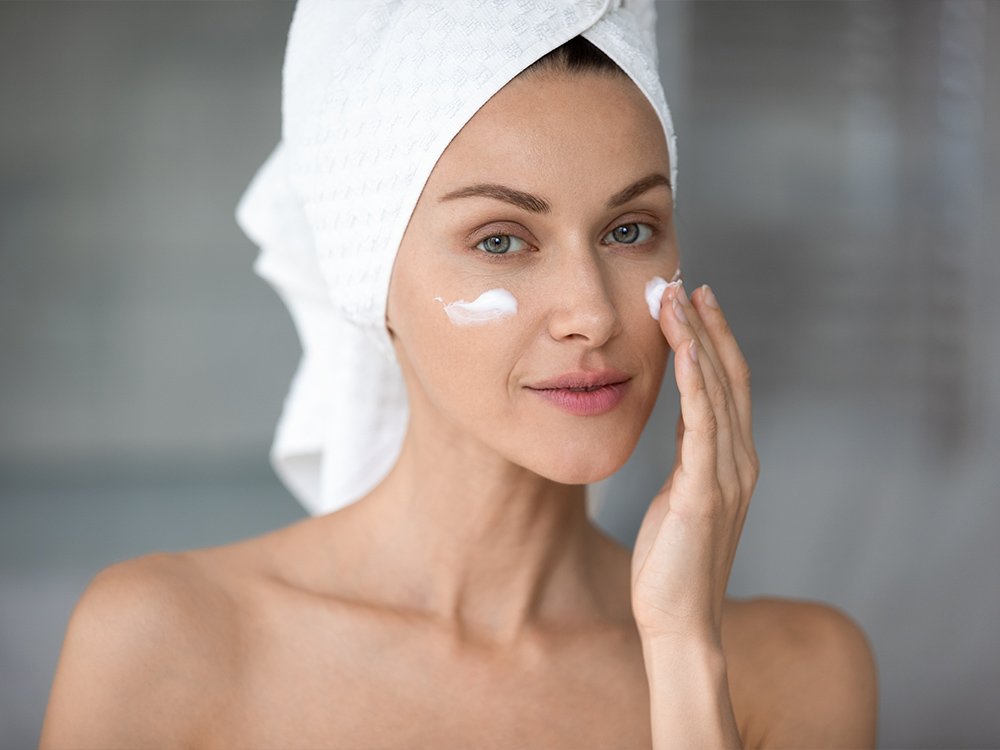
The Return of Sulfur in Skin Care
Sulfur had a big moment in the 90s. Not that the ingredient went anywhere, it could be found in plenty of products over the past few years, but now it’s truly trending again. The acne-fighting bacteria-blocking ingredient is starting to pop up in more products, and for good reason.
What is sulfur?
Sulfur is a naturally occurring element found in plants, soil and water. “We most commonly associate sulfur with rocks and minerals. However, it’s also an amazing skin treatment due to its anti-bacterial and anti-inflammatory properties,” explains Diana Dixon, Vice President of Product Development at Starface.
It’s antibacterial, anti-inflammatory and helps dry out oily skin
Sulfur is best known for its antibacterial and anti-inflammatory effects. However, it’s also great for absorbing oil and exfoliating skin, says Fort Lauderdale, FL dermatologist Dr. Matthew Elias. According to Dixon, “Adding sulfur into your skin-care routine will do wonders for your skin. It’s a gentle and effective acne treatment that’s clinically proven to clear pores, absorb excess oil and visibly reduce inflammation.” Sulfur also helps prevent future breakouts, notes Dixon.
Cosmetic chemists in Residence at Revela Gloria Lu and Victoria Fu say there is data that indicates sulfur can help as an antibacterial and keratolytic agent, helping to speed up cell turnover and dry out oily skin. “This is why you’ll most commonly see three percent to 10 percent sulfur used in over-the-counter acne treatments,” they explain.
“More recently, the combination of sulfur and sodium sulfacetamide has been studied for conditions such as seborrheic dermatitis, acne vulgaris, and rosacea,” Lu and Fu say. Dr. Elias notes that sulfur is also great for treating dandruff.
Sulfur in skin care is trending
Lu and Fu say sulfur has been used in topical skin care since the 60s. The ingredient saw a spike in popularity in the 90s, and now it seems to be trending again. “Beauty trends tend to cycle like fashion, so we’re not too surprised,” Lu and Fu say. Dixon notes that sulfur is currently a rising search trend among beauty consumers.
Dr. Elias contributes social media to the renaissance of once trending ingredients like sulfur. “Sometimes old treatments become vogue again so that influencers have something unique and different to promote. We see this across the spectrum in social media, not just skincare,” says Dr. Elias. However, this is not to discredit the ingredient. “Sulfur is still a great treatment and is used daily by board-certified dermatologists for skin disease.”
How to include sulfur in your skin-care routine
“Despite the buzz around sulfur, we would consider this more as a supporting ingredient rather than a solo superstar for acne. It’s definitely not a replacement for gold standard acne topicals like benzoyl peroxide, adapalene or prescription topicals,” Fu and Lu say. They note that consumers should keep in mind that most sulfur products will include other active ingredients and clays. “We definitely recommend giving the ingredient lists a scan to make sure you’re not overlapping too many actives or adding to skin dryness. A healthy barrier is important to fighting acne breakouts!” They suggest doing a patch test to ensure your skin responds well to the product.
Expert-recommended sulfur skin-care products to try
Dixon recommends Starface’s newly launched Super-Sulfur Magic Mask ($19). The product features a fun, vibrant blue color and 10 percent maximum strength sulfur, kaolin clay and blueberry extract to treat and prevent breakouts. “We chose to formulate our mask with 10 percent sulfur—the maximum over-the-counter strength—to reduce acne severity at the most effective level,” says Dixon.
Depending on your skin-care concern Dr. Elias recommends Mario Badescu Drying Lotion ($17), Prosacea Rosacea Treatment Gel ($9) and Clearogen Sensitive Skin Mineral Sulfur Acne Treatment ($37). If you want to try a prescription product, Dr. Elias recommends talking to a board-certified dermatologist about Sumaxin Wash and Pads, Ovace Wash and Avar Cream. Lu and Fu suggest trying Naturium’s 8% Sulfur Spot Treatment ($13) and iNNBeauty Pimple Paste Duo ($26).
Find a Doctor
Find a NewBeauty “Top Beauty Doctor” Near you